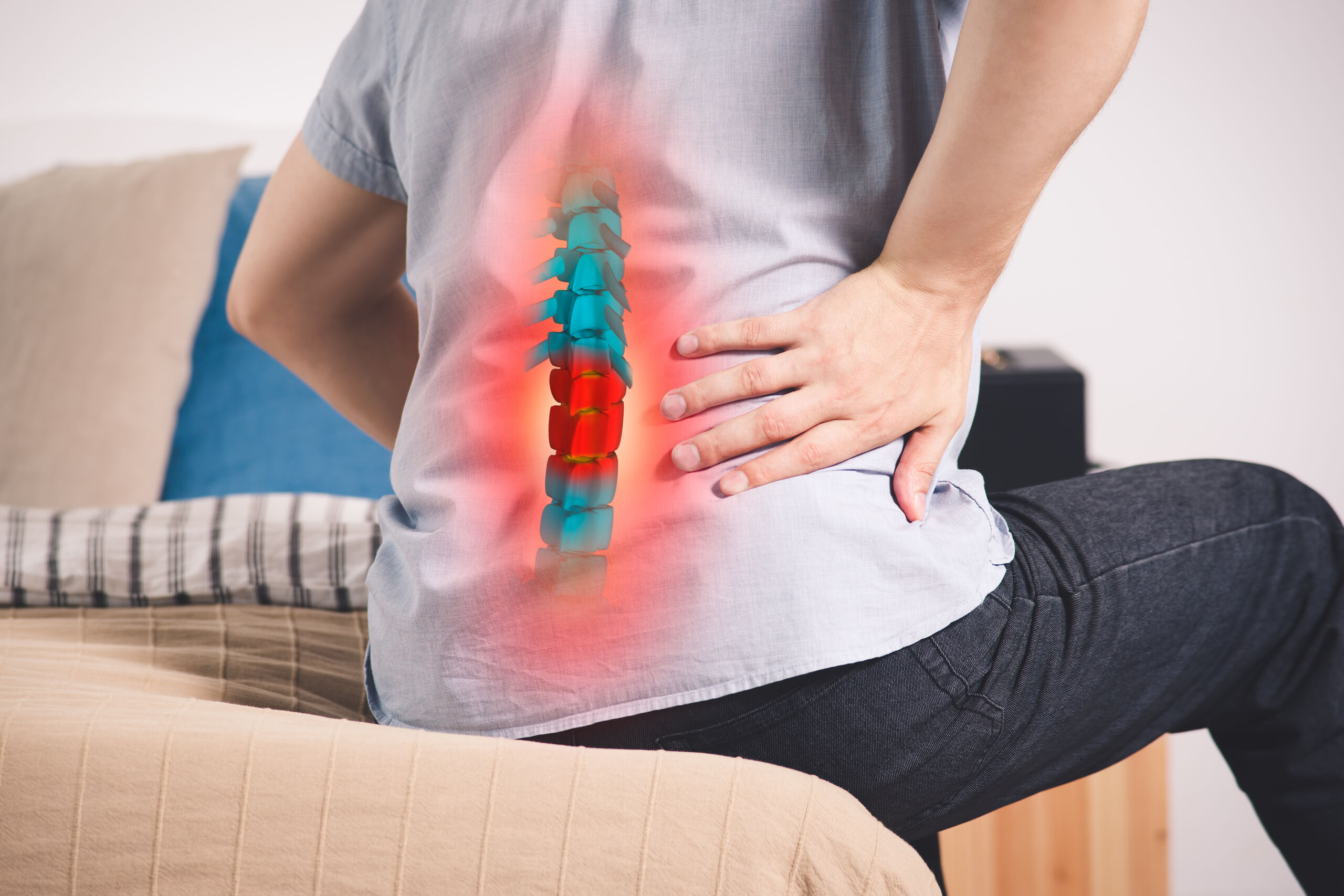Chronic Neck & Back Pain
Neck and back pain can range from a mild, dull ache, to persistent, severe pain that can significantly restrict your quality of life.
If you have persistent pain in your back or neck area, consult your health care provider.
Neck pain occurs in the area of the cervical vertebrae in your neck. Because of its location and range of motion, your neck is often left unprotected and subject to injury.
Pain in your back or neck area can be acute. That means it comes on suddenly and intensely. Chronic pain lasts for weeks, months, or even years. The pain can be continuous or intermittent.

Causes
Even with today’s technology, the exact cause of back and neck pain is difficult to determine. In most cases, back and neck pain may have many different causes, including any of the following:
- Strenuous activity, such as repetitive or heavy lifting
- Trauma, injury, or fractures
- Degeneration of vertebrae, usually caused by stresses on the muscles and ligaments that support your spine.
- Infection
- Abnormal growth, such as a tumor or bone spur
- Obesity
- Poor muscle tone
- Muscle tension or spasm
- Sprain or strain
- Ligament or muscle tears
- Joint problems, such as arthritis
- Smoking
- Protruding or herniated/slipped disk and pinched nerve
- Osteoporosis and compression fractures
- Congenital abnormalities of your vertebrae and bones
- Abdominal problems (Ex: aortic aneurysm)
Symptoms
Symptoms associated with back pain may include::
- Dull, burning, or sharp pain in your back. The pain can be confined to a single spot or cover a large area
- Leg numbness or tingling above or below your knee
- Stiffness or achiness that occurs anywhere along your spine (from your neck to your tailbone)
- Sharp, shooting pain that radiates from your low back to your buttocks, down the back of your thigh, and into your calf and toes
- Consistent ache in the middle or lower part of your back, especially after standing or sitting for an extended period
- Loss of bladder and bowel control, with weakness in both legs, are symptoms of a serious condition that requires immediate medical attention
- Arm numbness or tingling Headaches Shoulder pain Sharp shooting pains or a dull aches in your neck

Diagnosis
If you experience neck or back pain, you should see your health care provider for a medical and physical exam. He or she may also do X-rays of the affected areas, as well as magnetic resonance imaging (MRI). This allows a more complete view. The MRI produces pictures of soft tissues as well, such as ligaments, tendons, and blood vessels. The MRI could lead to a diagnosis of infection, tumor, inflammation, or pressure on your nerve. Sometimes a blood test may help diagnose arthritis, a condition that can cause back and neck pain.
Your doctor will also look for other causes of your pain by asking questions about what activities you’ve been doing lately or if anything has changed in your life—such as starting or stopping an exercise program or doing something new at work—that could be causing the pain.
He or she will want to know if there are any signs of injury such as bruising over the area where you feel pain or numbness in one area but not another when touched gently with one finger tip at a time from head to toe while lying down on your side with eyes closed (called “light touch”).
Treatment
If you experience acute back or neck pain, it may simply improve with some rest. Over-the-counter medicines, such as acetaminophen or ibuprofen, may also help with the discomfort. You should try to move gently during this period, so that you will not become stiff and lose mobility.
In order to prevent future bouts of acute pain, you should avoid activities that cause pain in the affected area. If you have chronic pain of your back and neck, you should try several remedies that may be helpful before seeking surgical options. These include:
Hot or cold packs (under your health care provider’s instructions)
Specific exercises to strengthen muscles and ease pain, such as stretching and flexing. Your health care provider can provide and demonstrate these exercises.
Aerobic exercise may be permitted and can help with your overall fitness and strength
Certain anti-inflammatory medications or muscle relaxants may be used with your health care provider’s supervision Braces or corsets for extra support Injections for pain relief in the area Nerve block which decreases pain signals from the affected nerve
Office Hours
Monday: 8 AM - 4:30 PM
Tuesday: 8 AM - 4:30 PM
Wednesday: 8 AM - 4:30 PM
Thursday: 8 AM - 4:30 PM
Friday: 8 AM - 4:30 PM
Saturday: Closed
Sunday: Closed
PROFESSIONAL DOCTORS
Dr. Schell has designed surgical techniques now used by many spinal surgeons.
MODERN EQUIPMENT
The most up-to-date medical equipment, to give you the best care that you deserve.
Professional spinal care and pain care experts are standing by to assist you. If we are not able to answer your question without an on-site appointment, we can schedule one for you.


